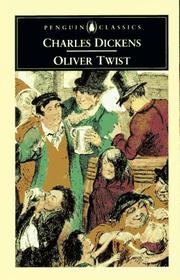Travellers' Tales Brazil: True Stories
ed. Scott Doggett, Annette Haddad

A collection of travellers tales of Brazil interspersed with interesting facts and each ending with a related short paragraph or two by another, often well known, traveller. Stories vary from classic traveller trips up the Amazon and other destinations including a few that I've visited way back when. As these are recent quite a few of the towns have developed and indeed a couple of off the beaten track villages now seem to be on the well beaten track and developed. Very enjoyable and bring back s ome great memories. Other stories relate to Amazon boat trips one being on the main Manaus - Belem cargo / passenger boats plying trade down the river to the Atlantic port. Memories of spending hot days in a hammock swinging out over the Amazon on a crazily crowded deck and being told of by the captain for playing cards. Apparently anything that looks like gambling is banned due to there being nowhere to run to if things get heated. Seems like you can gamble now - these stories are fairly recent and not from the late 80s. Other tales from the riverside are up backwaters and concentrate on rarely visited backwaters and the wildlife piranhas featuring heavily.
Some stories are more personal and focus on the people met and times had both good and not so good usually due to romance, the former, and crime, the latter. Still others are about the architecture of cities ranging from the relatively newly built capital Brasilia with mixed reviews to older colonial towns that are often in decay. And of course the luxury apartments of Rio standing opposite favelas and the skyscrapers of Sao Paulo which I think must have increased a lot since I visited.
The culture and festivities feature heavily of course from cowboys to Bahia dance / martial arts to the madness that is Carneval. This I spent in Rio not in the specifically made avenue for the samba schools but out on the streets in the middle of the city near our fabulously named Love House. Usually the generic name for brothels it was central to down town, rather than out by the beaches, and fairly clean. And cheap which is the main backpackers priority. Some interesting guests too many of whom did indeed use it as the name suggested. And I thought it was just a romantically named hostel.
Overall the book gives a great insight into the soul of Brazil from all aspects and made me want to return for another few months to take in everything once again and a few other experiences that others have written about. As my friend Chris is going out there for a year Debbie bought the book for him as a taster as she'd read it before and thought it the best introduction to Brazil rather than the standard guide books. I couldn't resist reading it and it now looks stylish, well used and slightly past it's best. But with such brilliant content it is a little like Brazil itself. I guess if it were Ipanema or Sao Paulo it would be sparkly new with a sexier or functional cover but as a summary of Brazil it's perfect. Slightly jealous of the times that Chris will have when he's there. Maybe I should check out the flight prices.....



